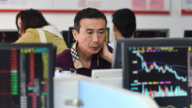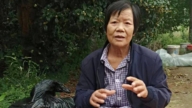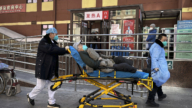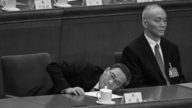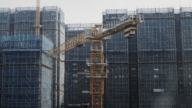【新唐人2011年9月24日讯】中共党报《人民日报》近日发表文章,反驳美国《福布斯》杂志全球“税负痛苦指数”榜单上中国位居全球第二。引起国内媒体和网民的广泛争议,中共御用专家的辩解遭到网民和媒体的批驳。中国学者指出,税负的高增长已经成为中国经济增长和转型的最大制度阻力。
《人民日报》9月19号发表题为“‘中国税负世界第二’说法不实”的文章,引述所谓专家的观点认为,“税负痛苦指数”科学性较差,在反映税负高低问题上存在缺陷,以国际标准“宏观税负”衡量,中国税负并不高。
对此,《福布斯》中文版总编辑周健工当天下午回应表示,这个榜单对各样本国家一视同仁的选取了各国政府通行的税种和最高税率,不能说它不科学。税负高低与痛苦程度并无绝对同比关系,主要还是取决于一个国家的税收是否能够真正做到“还之于民”。
草庵居士(财经评论家):“中国的‘税负痛苦指数’全球第二,仅次于法国。而且中国政府没有在政府的责任上,包括提供医疗、保险、退休、教育等各方面去帮助国民。”
人民网《强国论坛》的网评说,看了御用专家们的那些高论,中国的税负指数哪里还有“痛苦”呢,简直只有“幸福”两个字才能表达。实际上,中国人的“税负痛苦指数”比福布斯说的大多了。
网评指出,在中国的税制中,直接税占的比例很少,主要税收来自间接税,譬如增值税、营业税等。这些税收,虽然表面上是向企业征收,实际上已经体现在了商品和服务的价格中,由消费者直接买单,是每一个中国人都必须承担的税负。
程晓农(前中国经济体改所综合研究室主任):“中国的情况是这样,普通老百姓的收入很低,这些人是主要的纳税人。实际上中国老百姓的税赋是相当重。”
社科院经济学博士马光远表示,税负和“税负痛苦”是两个概念。目前中国税负总体确实过重,政府的财政收入远高于GDP和居民收入增速,这必然导致国富民穷。
《新京报》19号报导,财政部日前公布数据显示,前8个月全国财政收入7万4千多亿元,同比增长30.9%。今年财政收入将突破10万亿。多位专家表示,未来减税是税制改革的目标。
《济南日报》发表反驳《人民日报》的文章说,去年全国财政收入首次超过8万亿元大关,其中税收就占了财政收入的88%。连年破记录的财政收入不可能是从天上掉下来的。不管某些专家信不信我们的税负偏高,反正我是信了,恐怕很多民众也是深信不疑的。
《南方网》发表马光远的文章“中国宏观税负过高是不争的事实”,文章指出,2009年中国财政收入占GDP的比重已达到32.2%。2010年GDP增长只有10.4%,宏观税负保守估计却在35%以上。
马光远说,中国还没有成为高收入国家,但宏观税收负担已达到高收入国家的水平。“以前大家都吃土豆,现在的情况是国家吃鲍鱼,民众吃稍好些的土豆而已。”
程晓农:“中国还有一部分人,是税赋非常非常轻,可以说几乎没有税赋的人,那就是中国最有钱的人、最该交税的人。这批人主要是两类:一类是所谓的富人﹔第二类是各级官员。这两类人没有人是单靠工资过生活。中国政府允许官员们获得各种非法收入,而且不予追查,更不用谈交税。”
《强国论坛》网友说:“没有高税负,怎么能养活几千万人民公仆?”“转移财产到国外应该征20%的税。”“而土地财政却是历史上最大的苛捐杂税!”“苛政猛如虎呀,天天吹取得了伟大成绩。人民天天在苦、在哭。”
网评指出,中国的税负过重,已经压得实体经济喘不过气儿来了,破产倒闭每天都在发生。通货膨胀,老百姓手中的钱越来越少,内需不断萎缩,中国经济怎么能够好起来呢。社会财富向政府集中,中国经济也只能畸形发展,贫富差距越来越大,这是没有出路的。
新唐人记者李元翰、李若琳综合报导。
CCP Mouthpiece Refutes China’s Tax Burden
People’s Daily, a mouthpiece of Chinese Communist Party
(CCP), retorted to U.S. magazine Forbes’ publication,
“Tax Misery and Reform Index”, which ranks China
second in the list of countries with heaviest tax systems.
The action has sparked intensive debates
among China’s media and netizens.
They refuted explanations by CCP’s official experts.
Scholars point out that the high tax burden in China
has become the biggest impediment to the nation’s
economic growth and transformation.
On September 19, People’s Daily published an article titled:
“China’s Tax Burden World’s Second, A False Statement”.
The article quoted experts’ viewpoints, saying that
the Tax Misery and Reform Index are unscientific.
with several important loopholes. Adding that if measured
by macro-tax burden level, China’s tax burden isn’t heavy.
Zhou Jiangong, Editor-in-Chief of Forbes China, responded
that this index selected prevailing taxes and highest rates
of all nations on the list. So, it cannot be called unscientific.
Tax burden is not absolute comparison to Tax misery.
It mainly relates to whether the tax revenue
can really be expensed on the public.
Cao’an Jushi (Financial critic): “China is second
only to France in the list. But China’s authorities haven’t
assumed responsibilities to help civilians in the aspects of
medical care, insurance, retirement, education and the like.”
Netizen of forum on People.com.cn comments
that according to those official experts’ remarks,
where is there any Misery with tax burden in China?
It is only life of happiness for the civilians.
While in reality, Tax Misery Index of Chinese civilians
is far worse than what is shown in Forbes’ statistics.
Online articles point out that China’s tax system has few
direct taxes, the major parts are various indirect taxes
such as value-added tax, business tax, among others.
They are charged on businesses, but in fact, are paid
by consumers, and become tax burdens for each Chinese.
Cheng Xiaonong (ex-Director, Integrated Research Office,
China’s Economy Reform Institute): “Chinese civilians
are low-income earners but main taxpayers.
Their tax burdens are actually very heavy.”
Ma Guangyuan, Ph.D.in Economics, Academy of Social
Economics, said that tax burden is different from tax misery.
The current overall tax burden in China is indeed too heavy.
The official fiscal revenue is much higher
than the growth of GDP and civilians’ incomes,
inevitably resulting in wealthy government and poor civilians.
Beijing News reported on September 19, that according to
Ministry of Finance data, for the first eight months this year,
China’s fiscal revenue is over RMB7.4 trillion, 30.9% higher
than a year ago, and it will exceed RMB10 trillion this year.
Many experts believe that in the future,
tax reduction will become a target for tax reform in China.
Jinan Daily published an article disproving People’s Daily,
saying that China’s fiscal revenue 2010, for the first time,
exceeded RMB8 trillion, 88% coming from tax revenue.
Every year China’s tax revenue continues to break records.
No matter how those official experts try to justify it,
China’s tax burden is high, and many people know it.
Southcn.com published an article of Ma Guangyuan, titled
“Indisputable Fact, China’s Macro Tax Burden Too High”
The article points out that 32.2% of China’s GDP in 2009
comes from fiscal revenue.
GDP 2010 grew only by 10.4%, but a conservative estimate
of micro-tax burden is above 35%.
Ma Guangyuan believes that China has not yet become
a high-income nation, but the macro-tax burden
has already reached the level of high-income countries.
He said, “In the past, every one ate potatoes,
but now in China, the authorities eat abalones,
while civilians eat only slightly better potatoes.”
Cheng Xiaonong: “In China exists another group of people.
They have very, very low tax burden, almost no tax burden.
They are China’s most wealthy and should pay taxes most.
The group consists of mainly two categories:
one is the so-called rich, the other is officials at all levels.
None of these two categories lives only on salary.
Chinese government officials are allowed to gain various
illegal incomes but without being subjected
to official investigations, let alone tax payments.”
Netizens on People.com.cn forum: “Without high tax burden,
how can the tens of millions of public servants be fed?”
“Property transfer to foreign countries should levy a 20% tax.”
“Land fiscal revenue is historically the biggest tax exorbitant.”
“Tyranny is fiercer than a tiger, bragging every day
with great achievements,
but every day civilians are suffering and crying.”
Online comments point out that China’s tax burden is
too heavy. Bankruptcy and business failure occur daily.
Inflation devalues people’ incomes, and domestic demand
continues to fall. How could China’ economy be better off?
The social wealth is concentrated within the government,
causing an abnormal development of China’s economy.
The gap between rich and poor keeps widening
with no way out for China’s economy.
NTD reporters Li Yuanhan and Li Ruilin


